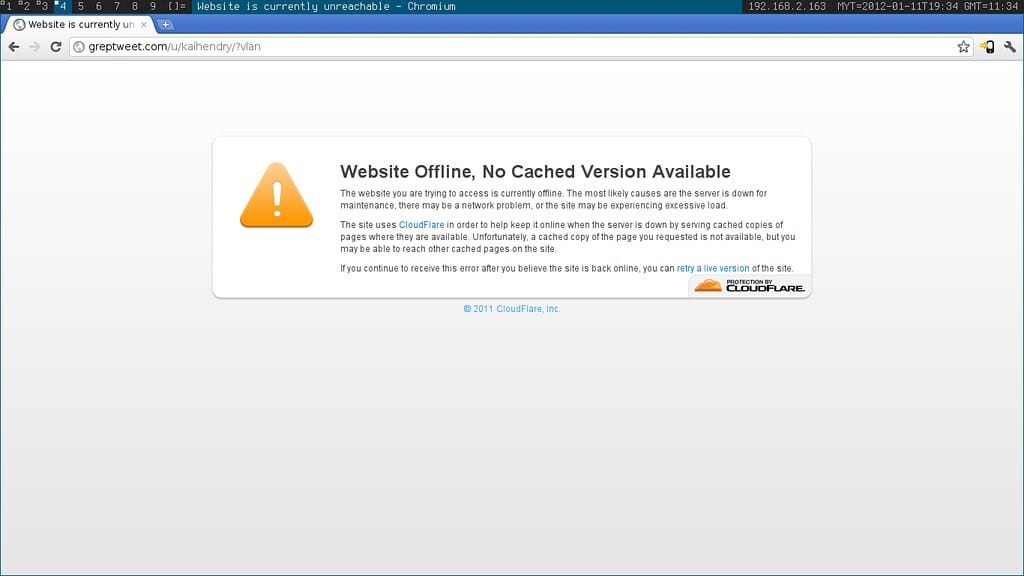Cloudflare Begins Blocking Pirate Sites for UK Users: A New Era of Internet Infrastructure Compliance
In a significant shift that could reshape how content blocking operates across the internet, Cloudflare has begun complying with UK court orders to block access to pirate websites at the DNS level. This marks the first time the American content delivery network and internet infrastructure giant has actively participated in site blocking, affecting millions of UK users who rely on Cloudflare's widely-used 1.1.1.1 DNS service.
The move represents a fundamental change in Cloudflare's approach to content regulation and signals a broader trend of internet infrastructure companies being drawn into copyright enforcement battles worldwide.
What's Actually Happening
Starting in early 2024, UK users attempting to access blocked pirate sites through Cloudflare's DNS service are now met with a redirect to a blocking page, effectively preventing access to these platforms. The blocking affects popular torrent sites and streaming platforms that have been subject to UK court orders, including major names in the piracy ecosystem.
Cloudflare's compliance stems from increasing legal pressure and court orders that specifically target DNS providers, not just internet service providers (ISPs). The company confirmed that it will honor "valid legal process" in jurisdictions where it operates, marking a departure from its previous stance of remaining neutral on content decisions.
Why This Matters Now
This development carries significant implications for several reasons:
Legal Precedent: Cloudflare's compliance sets a precedent for how major internet infrastructure companies respond to regional blocking orders. With Cloudflare handling approximately 20% of all internet traffic, this decision affects a substantial portion of global internet users.
Technical Implications: Unlike traditional ISP blocking, DNS-level blocking by infrastructure providers like Cloudflare is more difficult to circumvent using simple methods like VPNs or proxy servers, as it affects the domain name resolution process itself.
Global Reach: While currently limited to UK users, this approach could easily be extended to other jurisdictions where Cloudflare operates, potentially affecting users in the EU, US, and other regions where similar court orders exist.
The Broader Context
The UK has been particularly aggressive in pursuing site blocking as a tool against piracy, with over 7,000 domains currently blocked by major ISPs including BT, Sky, and Virgin Media. However, these blocks have historically been easy to bypass using alternative DNS services like Cloudflare's 1.1.1.1 or Google's 8.8.8.8.
Recent court orders have specifically targeted these "open resolvers," with judges arguing that DNS providers should be subject to the same blocking requirements as traditional ISPs. The High Court has issued injunctions requiring DNS providers to block access to pirate sites, treating them as intermediaries in the copyright infringement process.
Industry Response and Implications
The entertainment industry has welcomed Cloudflare's compliance, viewing it as a crucial step in making site blocking more effective. Rights holders have long argued that the availability of alternative DNS services has undermined the effectiveness of court-ordered blocks.
However, digital rights advocates warn that this precedent could lead to broader internet censorship, as governments may now view DNS providers as viable targets for content control. The concern is that what begins with piracy blocking could expand to other forms of content regulation.
Technical Workarounds and Effectiveness
Despite Cloudflare's compliance, determined users can still access blocked content through various methods:
- Using alternative DNS providers not subject to UK court orders
- Employing VPN services that route traffic through other jurisdictions
- Accessing sites through their IP addresses directly
- Using Tor or other anonymization networks
However, these workarounds require more technical knowledge than simply changing DNS settings, potentially making the blocking more effective against casual users.
Looking Forward
Cloudflare's decision represents a significant moment in the ongoing tension between content protection and internet freedom. As one of the internet's most critical infrastructure providers, the company's compliance with regional blocking orders may encourage other DNS providers to follow suit.
The effectiveness of this approach will likely depend on how comprehensive the blocking becomes across different DNS providers and whether courts in other jurisdictions follow the UK's lead in targeting internet infrastructure companies.
For users and businesses, this development underscores the importance of understanding how internet infrastructure policies can affect access to information. For policymakers, it highlights the growing complexity of content regulation in a globally connected internet where infrastructure providers play increasingly central roles in determining what content users can access.
As this story develops, it will be crucial to monitor whether other major DNS providers face similar legal pressures and how this might reshape the fundamental architecture of internet access worldwide.

